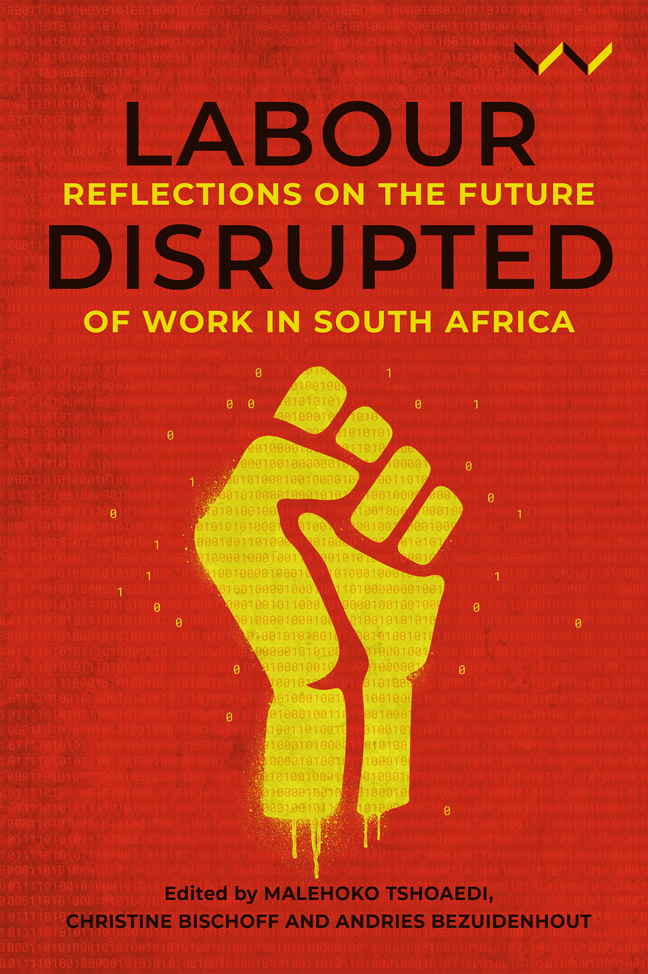Book contents
- Frontmatter
- Contents
- Figures and Tables
- Acknowledgement
- Acronyms
- Introduction: Disruptions and New Directions in South African Labour Studies
- Chapter 1 Fragmented Labour Movement, Fragmented Labour Studies: New Directions for Research and Theory
- PART I Changing Solidarities
- PART II Technology and Work
- PART III New Forms of Organising
- PART IV Labour and Lockdown
- Conclusion: Questions, Answers and New Directions
- Contributors
- Index
Chapter 13 - Going Global, Building Local: A Southern Perspective on the Future of Labour Internationalism
Published online by Cambridge University Press: 01 March 2024
- Frontmatter
- Contents
- Figures and Tables
- Acknowledgement
- Acronyms
- Introduction: Disruptions and New Directions in South African Labour Studies
- Chapter 1 Fragmented Labour Movement, Fragmented Labour Studies: New Directions for Research and Theory
- PART I Changing Solidarities
- PART II Technology and Work
- PART III New Forms of Organising
- PART IV Labour and Lockdown
- Conclusion: Questions, Answers and New Directions
- Contributors
- Index
Summary
INTRODUCTION
The distruption to global supply chains caused by lockdowns in response to the Covid-19 pandemic has created new challenges for trade unions’ involvement in transnational organising. But new ways of communicating in response to lockdowns have also opened up new opportunities for labour internationalism. This context provides new impetus for labour studies to train a new generation of trade union activists, as well as to develop a clear research agenda. Nevertheless, the idea of worker solidarity, the idea that the strong should help the weak to realise their collective power, continues to inspire trade unionists across the globe. Indeed, the idea goes back to the beginnings of industrial capitalism. It is best captured in Karl Marx's well-known slogan, workers of the world unite! In South Africa this call for worker unity took a peculiar form when, in the general strike of 1922, white workers mobilised around the slogan ‘workers of the world unite for a white South Africa’. Those early revolutionary socialists who brought the idea of labour internationalism from Europe to Southern Africa failed to persuade their fellow white workers – the colonisers – that their destiny lay with black workers – the colonised. The white workers defended their position on the grounds that they were being undercut by cheaper black labour (Webster 1978, 14–16).
This segmentation of the working class – by race, gender, language, skill and, above all, between the Global North and the Global South – remains the central challenge in building international worker solidarity. There is no homogeneous working-class condition, here or anywhere else in the world; just as in the late nineteenth century, in many parts of the world today for many working people a bad job is better than no job. Indeed, in the age of neo-liberal globalisation the movement of jobs from developed countries to developing countries has put workers in direct competition with each other. In such circumstances workers in one country begin to see workers in other countries as the enemy, rather than uniting to challenge capital. The result is a ‘race to the bottom’ where, Jan Breman and Marcel van der Linden (2014, 928) suggest, the ‘main burden falls on the lowest and the poorest masses in the globalised workforce’.
- Type
- Chapter
- Information
- Labour DisruptedReflections on the Future of Work in South Africa, pp. 270 - 288Publisher: Wits University PressPrint publication year: 2023

